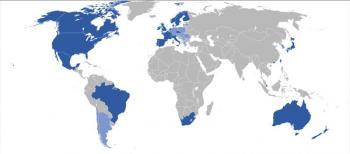A total of 3.68 trillion yuan (US$535 billion) was wiped from the A-share capitalization last Thursday. Since the peak last year, the total capitalization in Shanghai and Shenzhen has fallen to 18.74 trillion yuan ($2.72 trillion) from 32.71 trillion yuan ($4.75 trillion) within one year. That is, a total of 14 trillion yuan ($2.03 trillion) disappeared from China’s stock market due to the drop. So far, this is the first time the A-share market has declined ten times in a row. The benchmark Shanghai Composite Index once finished at 2,769, a 15-month low.
The total loss in the stock market amounts to about 56.65 percent of China’s GDP of 24.66 trillion yuan ($3.58 trillion) in 2007, the Economic News Weekly said June 17.
A survey sponsored jointly by CCTV’s “Half an Hour for Economy” and other Web sites had received questionnaires from 764,588 investors by 11 a.m. on June 18. The results indicate that 92.5 percent of the investors suffer from losses, 4.3 percent make a profit, and 3.2 percent can break even. Among the investors who lose their money, the loss capitalization amounts to more than 50 percent of their financial assets.
The survey shows that 82.7 percent of the investors attribute the loss from the stock market to deficient adjustment and supervision; 10.4 percent to imperfect knowledge of macroeconomics and theories about the stock market; and 7 percent to inadequate skill in playing the stock market.
Some experts from NetEase business channel point out that the stock market is slumping; a lot of recent floatations have fallen below their offer prices, which reflects that the stock market lost its ability of absorbing mass capital gradually. In an apparent unhealthy stock market, huge price fluctuations can occur very quickly, which strands 90 percent of investors.
The sharp drop in the stock market is only a temporary phenomenon and China’s stock market would not betray a mature investor in a long term, noted the former commissioner of the National Bureau of Statistics, Li Deshui, a few days ago.

